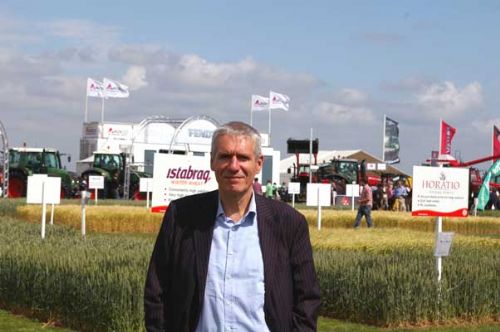
Wheat’s position as a major grain is under threat unless policy makers approve the use of technology in enabling breeders to develop varieties capable of meeting the needs of the future
Limagrain, Europe’s largest plant breeder by market share, is to focus on consolidating its position in its leading markets of Europe and North America while developing its position in South America and Asia, according to group chief executive Daniel Chéron.
The group has recently established its own breeding programme in North America and is ahead of schedule in delivering wheat varieties.
At a recent briefing, Monsieur Chéron outlined the group’s strategy for the long term. Central to this strategy is to promote the competitive position of wheat – number one crop worldwide with 226m ha - in relation to the other crops, such as maize which has seen yield gains far in advance of wheat.
Part of this challenge lies in challenging the negative attitudes, particularly those in Europe, towards the use of technology, such as plant biotechnology, in breeding new varieties.
"Corn yields are increasing by an average 2% year-on-year compared with flat growth in wheat. GM technology is largely responsible for delivering the yield improvements seen in corn," said M Chéron.
But policy makers and farmers should not get lost in the pursuit of yield, he says. Advances in breeding technologies, which have followed since the sequencing of the wheat genome is delivering traits that will benefit growers in other ways. For Limagrain this means developing varieties with improved nitrogen efficiency and drought tolerance.
Meeting the future needs of the farmer while fulfilling the political targets of national governments, however, can be frustrating and involves many compromises. France has recently adopted a policy intended to cut by half the amount of fertiliser and pesticides used in agriculture by 2018 compared with 2011 levels.
Achieving this aspiration will require France’s politicians to revise attitudes towards the use of breeding technologies, believes M Chéron.
"We are in dialogue with the political people to promote the use of technology in plant breeding while cutting the use of inputs," he says.
"If we don’t embrace GM technology now we cannot expect to benefit from its advantages in 2020."
But while GM is important, it is not the panacea that some of its proponents suggest. "Non-GM traits also have a great deal to offer. Developing a hybrid wheat is a huge challenge – the genome is more complicated than that of maize – but if it can be done it has the potential to deliver significant benefits."
M Chéron believes that while delivering this vision is far from easy, such boldness is necessary if wheat is to retain its competitiveness in the face of advances in other varieties. "This is why we are so keen to promote the role of technology in plant breeding; we want to be regarded as the master of this technology in wheat."
